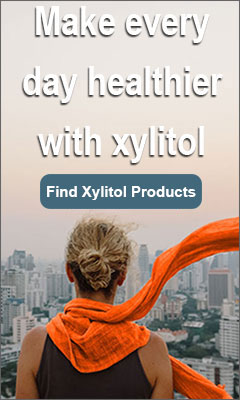.
…… A GOOD ALTERNATIVE
.
Xylitol is among the many sugar substitutes for diabetics on the market. While they all share the same benefit of being consumable by diabetics, there are several benefits to choosing xylitol over other sweeteners like aspartame or stevia. Among the starkest benefits, xylitol looks and tastes nearly identical to table sugar, and doesn’t have a bad aftertaste.
Zero Carbs
Xylitol contains no fructose, and doesn’t affect blood sugar levels or insulin the same way normal table sugar does. It is a Zero carbs sweetener, and has 40% fewer calories than sugar.
Low Glycemic Index
Sugar has a glycemic index of 68. Comparatively, xylitol has an index of 7. The glycemic index chart measures carbohydrates by how fast those carbohydrates break down and are converted to glucose. This means that normal table sugar raises blood sugar levels nearly ten times faster that xylitol does. Xylitol is absorbed slowly, and therefore doesn’t have any of the harmful affects of sugar.
Sweetness and Texture
In its crystallized form, xylitol feels and tastes nearly the same as sugar. Because of this, many diabetics choose to use xylitol over other sweeteners after having to transition away from normal sugar.
Natural
Another benefit of xylitol over other sweeteners is that it is produced from natural resources. For commercial use, xylitol is extracted from either of two plants: corncobs, or birch trees. Many manufacturers prefer to use corncobs, as they are easier to produce and much more sustainable. Aside from that, however, xylitol is a naturally occurring substance in many fruits, and even in the human body.
No Bad Aftertaste
Many artificial sweeteners and sugar alternatives have either a bad taste, or aftertaste. Xylitol stands apart as a sugar substitute that has both a great taste, and no bad aftertaste.




